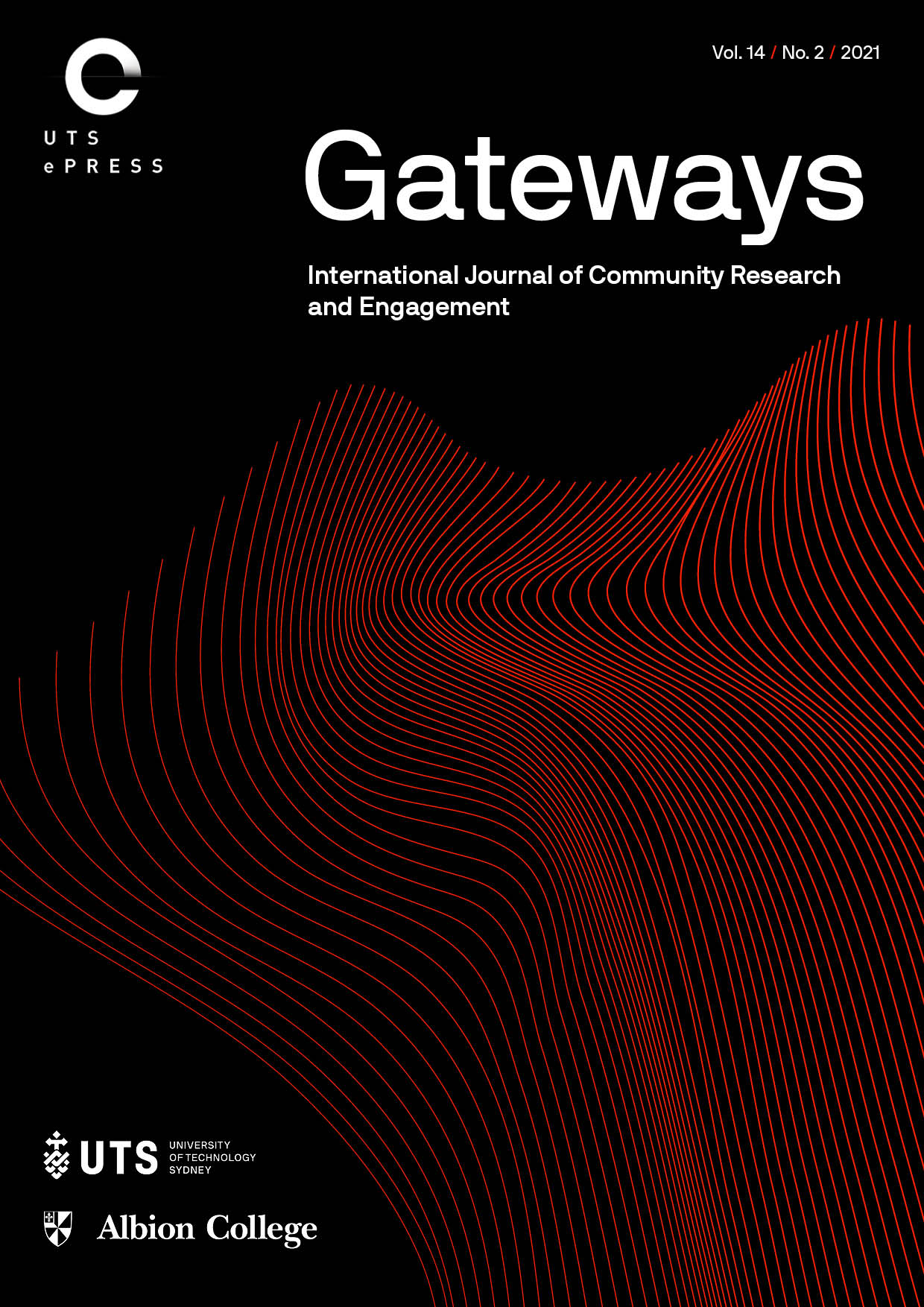A Relational Approach to Transforming Power in a Community-University Partnership
Main Article Content
Abstract
We use a relational understanding of power to analyze power dynamics at the institutional and interpersonal levels in our multi-year Co-Education/Co-Research (CORE) partnership between Tufts University Department of Urban and Environmental Policy and Planning (UEP) and Dudley Street Neighborhood Initiative (DSNI). Power in community-university partnerships is often examined only at the institutional level, conceiving of power as a resource to be balanced and shared. Indeed, CORE has advanced institutional shifts through co-governance, equitable funding, co-production of curriculum and cross-flow of people. While institutional policies and practices are critical, they alone do not transform deep-seated hierarchies that value university knowledge, practices and people over community. To understand how intertwined interpersonal and institutional practices can reproduce or transform these cultural and ideological dynamics, we use a relational approach, understanding that power flows in and through all relations. As community members, students and faculty, we reflect on the contradictions we have encountered in CORE. We examine how we reinforce the dominance of academic over community knowledge, even as we leverage institutional power to further community goals. These tensions can be opportunities for shifting, disrupting and transforming towards more equitable relations, but they can also reproduce and reinforce the status quo. Through reflective practice and a relational ethic of care, we can try to recognize when we might be shifting power relations and when we might be reproducing them. This is messy work that requires a lot of communication, trust, reflection and time. A relational approach to power provides hope that we can be part of the change we seek in all of our relations, every day. And it reminds us that no matter what we have institutionalised or encoded, our individual beings, organizations and communities are always in a process of becoming.
Article Details
Issue
Section
Authors who submit articles to this journal from 31st March 2014 for publication, agree to the following terms:
a) Authors retain copyright and grant the journal right of first publication with the work simultaneously licensed under a Creative Commons Attribution License that allows others to share and adapt the work with an acknowledgement of the work's authorship and initial publication in this journal.
b) Authors are able to enter into separate, additional contractual arrangements for the non-exclusive distribution of the journal's published version of the work (e.g., post it to an institutional repository or publish it in a book), with an acknowledgement of its initial publication in this journal.
c) Authors are permitted and encouraged to post their work online (e.g., in institutional repositories or on their website) prior to and during the submission process, as it can lead to productive exchanges, as well as earlier and greater citation of published work (See The Open Access Citation Advantage Service). Where authors include such a work in an institutional repository or on their website (ie. a copy of a work which has been published in a UTS ePRESS journal, or a pre-print or post-print version of that work), we request that they include a statement that acknowledges the UTS ePRESS publication including the name of the journal, the volume number and a web-link to the journal item.
d) Authors should be aware that the Creative Commons Attribution (CC-BY) License permits readers to share (copy and redistribute the work in any medium or format) and adapt (remix, transform, and build upon the work) for any purpose, even commercially, provided they also give appropriate credit to the work, provide a link to the license, and indicate if changes were made. They may do these things in any reasonable manner, but not in any way that suggests you or your publisher endorses their use.
For Volume 6 (2013) and before, the following copyright applied:
Articles published by UTSePress are protected by copyright which is retained by the authors who assert their moral rights. Authors control translation and reproduction rights to their works published by UTSePress. UTSePress publications are copyright and all rights are reserved worldwide. Downloads of specific portions of them are permitted for personal use only, not for commercial use or resale. Permissions to reprint or use any materials should be directed to UTSePress.
